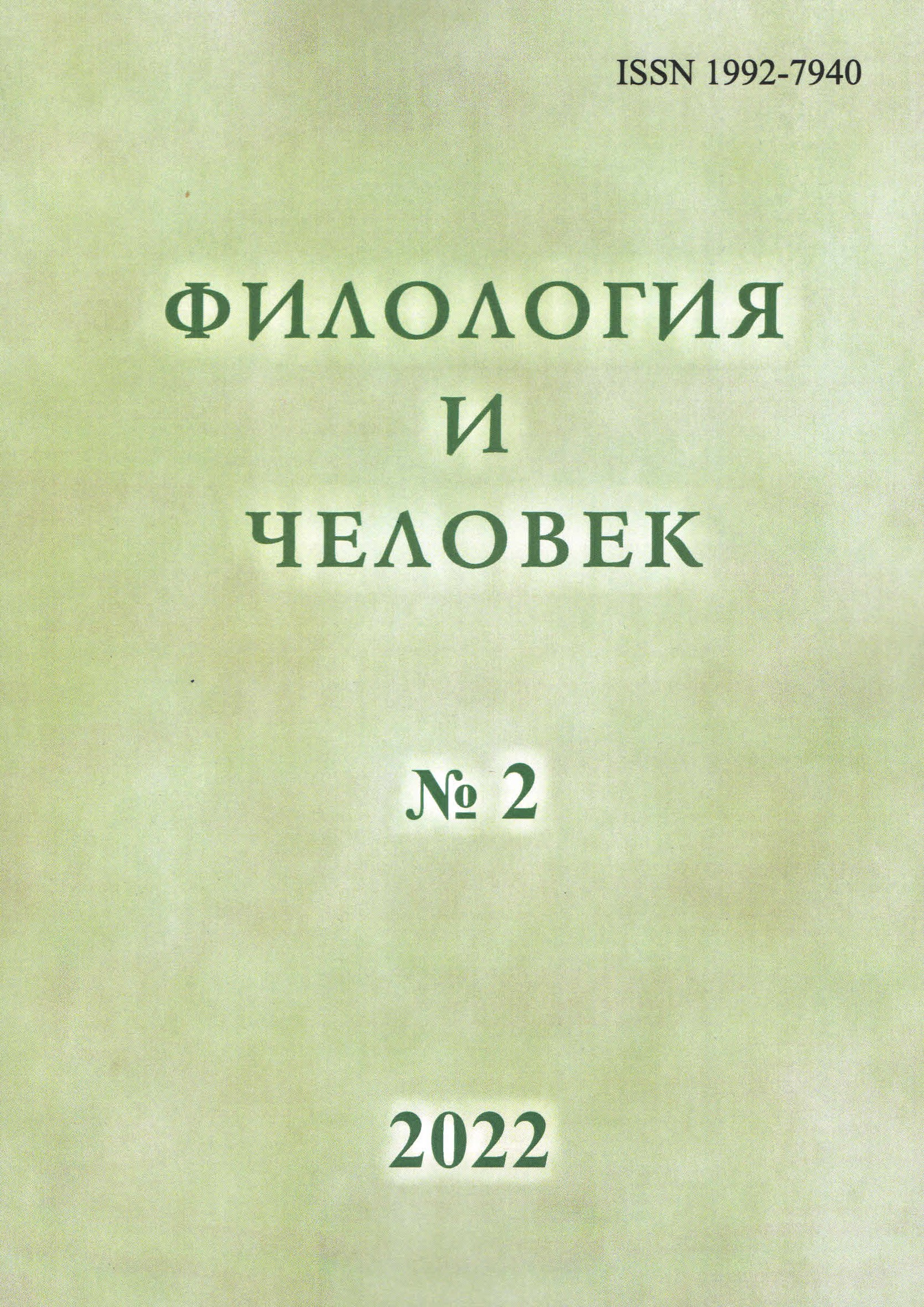Subject Structure of Texts on New Reality
Abstract
The article demonstrates the potential of Prof. G.A. Zolotova’s functional and communicative grammar in analysis of texts on new reality regarding subjects involved in this reality. The author examines different genres – from news to philosophical essay – dwelling upon high technologies and digitalization. The subject structure of a text includes communicative frame (sender and recipient) and in-text subjects (human and non-human) which receive different predicates from the author constructing his textual world. The linguistic analysis of the text’s subject structure allows one to reveal the author’s point of view, the properties of his desirable world and ideas critical for the epoque. The analysis of the characteristics predicated to different types of subjects as well as the linguistic means of expression or elimination of these subjects helps to see these critical ideas activization of non-human “intelligent” devices acquiring independence and intentionality together with deindividualization and disembodiment of human subjects. The ideology of independency and personalization of machines and “dissolution” of human subjects is expressed both by language-specific means and lexicogrammar ones, common for Russian and other languages.
Downloads
Metrics
References
Буслаев Ф.И. О преподавании отечественного языка. М., 1844. URL: http://az.lib.ru/b/buslaew_f_i/text_1844_o_prepodavanii_oldorfo.shtml
Ефремова Т.Ф. Новый словарь русского языка. М., 2000.
Золотова Г.А. Очерк функционального синтаксиса современного русского языка. М., 1973/
Золотова Г.А. Коммуникативные аспекты русского синтаксиса. М., 1982.
Золотова Г.А. О чем говорит предложение? // Мир русского слова. 2005, № 3–4. С. 58–61.
Золотова Г.А., Онипенко Н.К., Сидорова М.Ю. Коммуникативная грамматика русского языка. М., 1998.
Серио П. Как читают тексты во Франции // Квадратура смысла: Французская школа анализа дискурса. М., 1999а. С. 12–53.
Серио П. Русский язык и анализ советского политического дискурса: анализ номинализаций // Квадратура смысла: Французская школа анализа дискурса. М., 1999б. С. 337–384.
Сидорова М.Ю. Грамматика художественного текста. М., 2001.
Сидорова М.Ю. Неопределенно-личность в поэтике Чехова // Gramatyka a Tekst. Katowice, 2011. Вып. 3. C. 110–115.
Сидорова М.Ю., О Чжон Хюн. Система субъектов в лирической поэзии - ключ к инвариантным смыслам художественного мира автора // Филология и человек. 2014a. № 3. C. 36-46.
Сидорова М.Ю., О Чжон Хюн. Система субъектов как основа для моделирования поэтического мира (на примере лирики Булата Окуджавы) // Структуры и функции: исследования по русистике. 2014б. Т. 1. № 2. С. 46–67.
Сломан С., Фернбах Ф. Иллюзия знания: почему мы никогда не думаем в одиночестве. М., 2017.
Halliday M.A.K. Linguistic function & literary style: An inquiry into the language of William Golding’s The Inheritors // Seymour Chatman (ed.). Literary style: а symposium. New York, 1971. Pp. 330–368.
Heim M. The Metaphysics of Virtual Reality. New York, 1993.
Levelt W.J.M. Speaking: From Intention to Articulation. Cambridge, MA, 1989.
Источник
Серр М. Девочка с пальчик. М., 2012.
Редакционная коллегия научного журнала «Филология и человек» придерживается принятых международным сообществом принципов публикационной этики, отраженных, в частности, в рекомендациях Комитета по этике научных публикаций (Committee on Publication Ethics (COPE), Кодекс этики научных публикаций), а также учитываeт ценный опыт авторитетных международных журналов и издательств.
Во избежание недобросовестной практики в публикационной деятельности (плагиат, изложение недостоверных сведений и др.), в целях обеспечения высокого качества научных публикаций, признания общественностью полученных автором научных результатов каждый член редакционной коллегии, автор, рецензент, издатель, а также учреждения, участвующие в издательском процессе, обязаны соблюдать этические стандарты, нормы и правила и принимать все разумные меры для предотвращения их нарушений. Соблюдение правил этики научных публикаций всеми участниками этого процесса способствует обеспечению прав авторов на интеллектуальную собственность, повышению качества издания и исключению возможности неправомерного использования авторских материалов в интересах отдельных лиц.





